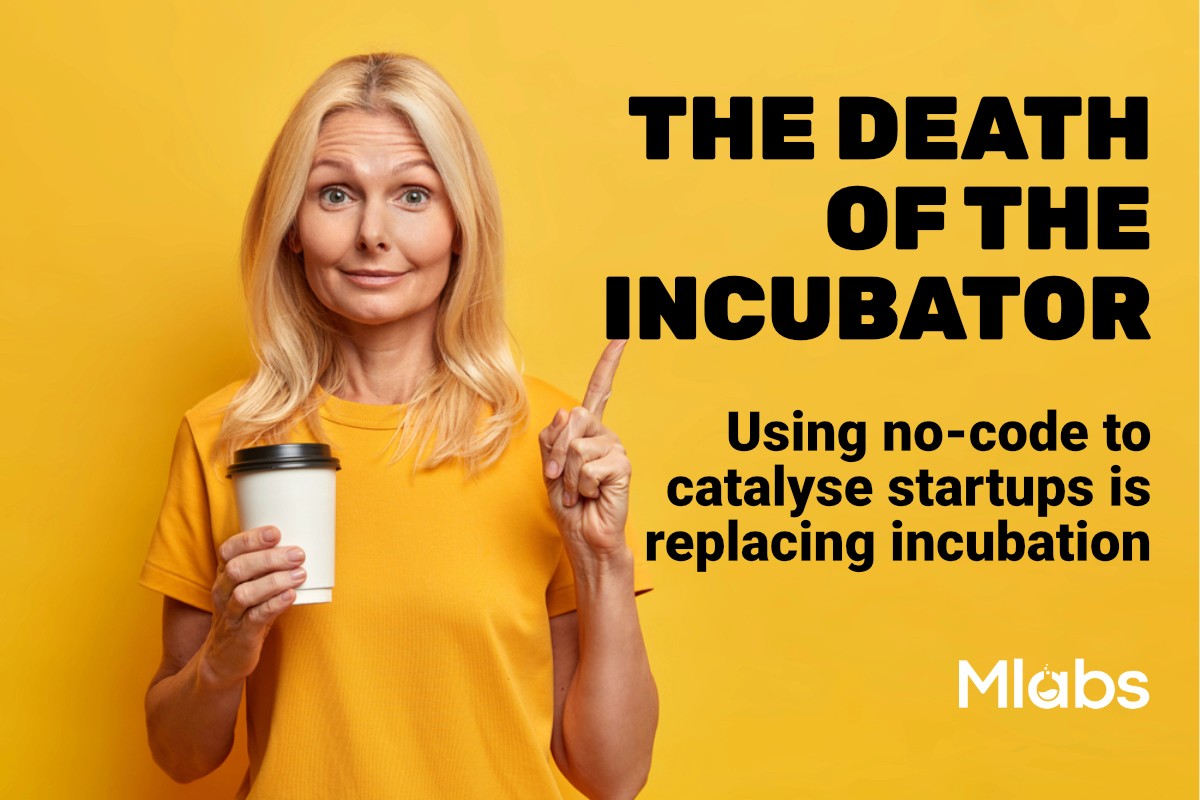
Simon Jenner
Sunday 2 May 2021

The rules of pre-seed investment changed in the last two years. Investors and incubators need to catch up.
Posted in:
Startups
Back in the 80’s when Nolan Bushnell left Atari and created what is generally recognised as the first tech incubator, he envisioned a place where a founder would be given the key to a new office and an incorporated business to run from it. He wanted to remove all the distractions of payroll, healthcare, accounting etc. and let founders focus on developing their product or service.
It wasn’t the first incubator (the term has been around in the US since the 1950’s) but from it’s home in Silicon Valley Bushnell’s Catalyst Technologies ushered in a new era of startup investment. Incubators offered space, money and a whole host of advice, guidance and business services. They helped to launch the startups that created the Dotcom boom and everything that has happened since.
Today there are tens of thousands of incubators and their close relative the ‘accelerator’ all over the world. Some of the best, like Y-combinator, TechStars and 500 Startups, back their founders with solid investment and advice from some of the world’s most successful founders and business people. However, sadly the market has been swamped with organisations that offer little more than a desk, a few meetings with local service providers and the off-chance of an intro to some poorly qualified ‘investors’.
This devaluation of the term ‘incubator’ had already created a general cynicism among founders who would join multiple programmes on the off-chance they might lead to investment. Then in 2020 the outbreak of covid dealt another blow to the “space based proposition” of most incubators. There is no doubt that remote working is here to stay and that a spare desk in an office has lost some of its allure.
With incubator programmes costing as much as $30,000 to $50,000 per startup to operate it is certainly time to re-examine the role they play. In the case of those programmes backed by the public purse there needs to be better checks and balances on the reported outcomes. Are incubators really driving innovation, growth and jobs?
Million Labs started out describing itself as an incubator but we quickly realised the term was holding us back. We don’t offer space, mentors or business support. We offer tech and investment. Fortunately, when you ignore what pre-seed founders say they want, and focus on what they actually need... tech and investment rank first and...also first (usually the investment is primarily for tech). Perhaps this is why, in a time when incubators are struggling to fill cohorts, we at MLabs have six or seven new applications each day.
Our use of no-code means that we can build and market test a tech startup for around $10,000. That means we can bring five startups to revenue for the price of one seat in an incubator. What’s more this remarkably low barrier to entry serves exactly the sort of underrepresented founders other programmes fail to attract. The mix of Million Labs founders has always been one of our biggest success stories and as we have often said, the diversity of founders is well matched by the diversity of their projects. Those projects are targeting markets that traditional investment models would never support.
Of course incubators aren’t really dead. Their journey has been a constantly evolving thing. At the heart of the industry the biggest firms are reacting to recent changes, delivering remote cohorts and catching on to the no-code boom. We are one iteration of a journey that started with Nolan Bushnell and will continue as long as founders want to make new things. We hope the industry learns from us and our community and uses our methods to catalyse the outcomes of their own programmes.
It wasn’t the first incubator (the term has been around in the US since the 1950’s) but from it’s home in Silicon Valley Bushnell’s Catalyst Technologies ushered in a new era of startup investment. Incubators offered space, money and a whole host of advice, guidance and business services. They helped to launch the startups that created the Dotcom boom and everything that has happened since.
Today there are tens of thousands of incubators and their close relative the ‘accelerator’ all over the world. Some of the best, like Y-combinator, TechStars and 500 Startups, back their founders with solid investment and advice from some of the world’s most successful founders and business people. However, sadly the market has been swamped with organisations that offer little more than a desk, a few meetings with local service providers and the off-chance of an intro to some poorly qualified ‘investors’.
This devaluation of the term ‘incubator’ had already created a general cynicism among founders who would join multiple programmes on the off-chance they might lead to investment. Then in 2020 the outbreak of covid dealt another blow to the “space based proposition” of most incubators. There is no doubt that remote working is here to stay and that a spare desk in an office has lost some of its allure.
With incubator programmes costing as much as $30,000 to $50,000 per startup to operate it is certainly time to re-examine the role they play. In the case of those programmes backed by the public purse there needs to be better checks and balances on the reported outcomes. Are incubators really driving innovation, growth and jobs?
Million Labs started out describing itself as an incubator but we quickly realised the term was holding us back. We don’t offer space, mentors or business support. We offer tech and investment. Fortunately, when you ignore what pre-seed founders say they want, and focus on what they actually need... tech and investment rank first and...also first (usually the investment is primarily for tech). Perhaps this is why, in a time when incubators are struggling to fill cohorts, we at MLabs have six or seven new applications each day.
Our use of no-code means that we can build and market test a tech startup for around $10,000. That means we can bring five startups to revenue for the price of one seat in an incubator. What’s more this remarkably low barrier to entry serves exactly the sort of underrepresented founders other programmes fail to attract. The mix of Million Labs founders has always been one of our biggest success stories and as we have often said, the diversity of founders is well matched by the diversity of their projects. Those projects are targeting markets that traditional investment models would never support.
Of course incubators aren’t really dead. Their journey has been a constantly evolving thing. At the heart of the industry the biggest firms are reacting to recent changes, delivering remote cohorts and catching on to the no-code boom. We are one iteration of a journey that started with Nolan Bushnell and will continue as long as founders want to make new things. We hope the industry learns from us and our community and uses our methods to catalyse the outcomes of their own programmes.
Ready to launch your startup idea with an MVP?
Download our step by step guide for non-technical founders to create a startup Minimum Viable Product (MVP)
Get the eBook

